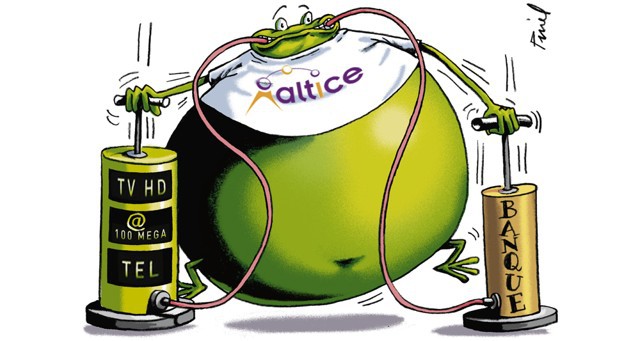 The Communications Workers of America has told the New York Public Service Commission it should reject Altice’s proposal to buy Cablevision for more than $17 billion, claiming it’s a bad deal for customers and employees alike.
The Communications Workers of America has told the New York Public Service Commission it should reject Altice’s proposal to buy Cablevision for more than $17 billion, claiming it’s a bad deal for customers and employees alike.
Citing Altice’s massive debt and the company’s documented history of cutting expenses and investment, Dennis Trainor, vice president for the CWA-District One, said approving the deal would load Cablevision down in debt, making any significant investments in Cablevision’s future doubtful.
“This is a bad deal for Cablevision customers and employees,” Trainor said. “Altice overpaid for Cablevision, and is financing that overpayment by loading Cablevision with debt. That will inevitably lead to worse service for customers.”
The CWA also heavily criticized Altice and Cablevision for stalling sharing documentation with the labor union as ordered by a New York Administrative Law Judge. It filed initial comments opposing the transaction with the PSC under protest.
 “As late as the morning of Feb. 5, [the Joint Applicants] have continued their grudging and incomplete disgorgement of relevant and probative material to which CWA is entitled,” the CWA wrote. “CWA now possesses documents and data which are contradictory and require reconciliation.”
“As late as the morning of Feb. 5, [the Joint Applicants] have continued their grudging and incomplete disgorgement of relevant and probative material to which CWA is entitled,” the CWA wrote. “CWA now possesses documents and data which are contradictory and require reconciliation.”
The CWA considers the deal good for Altice and Cablevision’s owners and investors, but a raw one for customers.
“For example, Cablevision’s top five executives will have almost $160 million in ‘golden parachute’ compensation available to them under certain circumstances if the transaction is approved, of which almost $100 million will become automatically triggered and payable upon consummation of the merger,” the CWA stated. “In sum, after the transaction closes, Cablevision will be the same company, with the same plant and equipment, but with substantially more debt and relatively little cash on hand,” the CWA concluded.
The CWA also cited Stop the Cap!’s own reporting of the consequences of increasing debt and reduced investment at SFR, an Altice-owned telecommunications provider in France:
“We refer the Commission to publicly available reports of a collapse of service quality for customers of SFR, one of France’s largest telecom service providers, owned by Altice. This has caused a doubling of complaints from wired customers between 2014 and 2015 and a corresponding increase in complaints about wireless service of 50%. Altice had two responses: First, it blamed the company it purchased SFR from ‘we pay the price of underinvestment from the previous [owner]’. Second, it disputes whether the level of complaint is unacceptable ‘For now, we are not very good, but we are not bad.'”
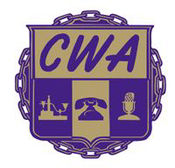 New York City’s Office of the Public Advocate is no fan either. In its filing, the OPA also cited Altice’s enormous debt load, which has increased dramatically over the last four years.
New York City’s Office of the Public Advocate is no fan either. In its filing, the OPA also cited Altice’s enormous debt load, which has increased dramatically over the last four years.
“[Altice CEO Patrick] Drahi has already driven away customers and alienated employees in France since his acquisition [of SFR],” writes the OPA. “In SFR’s case, Altice eliminated costs to boost SFR’s profit margins. Among Altice’s practices with SFR were: efforts to stall payments for suppliers, initiating salary and job cuts, and a reduction in spending on meaningful service upgrades.”
The OPA also cites reporting by Stop the Cap! documenting how SFR performed after being acquired by Altice.

Leticia James, Public Advocate for the City of New York
“We know, for example, SFR was forced to completely stop paying suppliers in order to force a renegotiation for cheaper supplies,” writes the OPA. “The French government appointed a mediator to resolve the issues. Moreover, these business practices failed to effectuate Altice’s goals. Just four months ago, Altice reported ‘worse-than-expected’ third quarter results for SFR that drove the company’s shares down 10 percent. In fact, SFR lost one million customers in just one year. Investors correctly attribute customer losses to Altice’s aggressive cost-trimming. As one expert explains, ‘the savings came first immediately and now the churn (or customer defection) goes up.’ Another analyst describes Altice’s ‘dangerous’ actions as not only cutting out the fat, but also the meat and the bones.”
The PSC staff reviewing the transaction also expressed concern that Altice’s willingness to keep data caps at its other acquisition Suddenlink may result in similar data caps being implemented on Cablevision customers after the merger.
Especially notable to the PSC staff was the fact that under Suddenlink’s 1000/50Mbps data-capped plan, “if the connection is utilized at its rated speeds […] a customer could reach the data cap in less than two hours.”
“If Altice were to import Suddenlink’s pricing into Cablevision service territory and impose data caps on its existing plans, some customers would be forced to upgrade not for the increased speed, but for larger data caps,” the PSC staff wrote. “For example, customers on Cablevision’s low-end 5Mbps plan, if limited to a 250GB monthly cap, would technically be able to hit their cap after just five days of constant use. More practically, they would be limited to approximately 83 hours (a little less than three hours a day) of video streaming, if the connection were not used for anything else.”
“Simply put, the introduction of Suddenlink-type data caps in Cablevision’s New York service territory post-transaction would limit the ability of New York consumers to utilize their broadband connections at their own discretion, as they currently enjoy with Cablevision service today, and would lessen the ability of over-the-top voice and video providers to compete with Cablevision’s bundled services,” the PSC staff concluded. “The imposition of Suddenlink-type data caps would be a significant detriment to New York consumers, and should not be allowed as a condition of the transaction.”
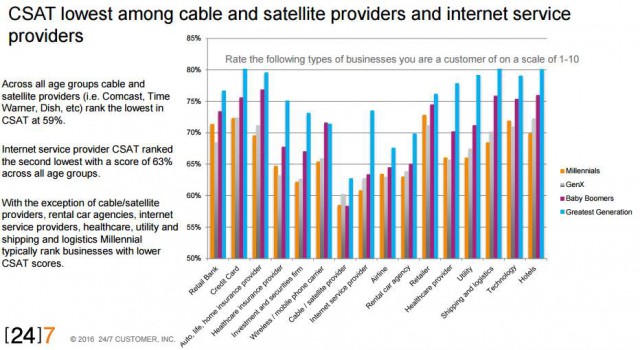


 Subscribe
Subscribe CenturyLink is planning to trial usage caps on its broadband service later this year, not to reduce congestion or to bank the extra money for service upgrades, but to boost revenue and profits.
CenturyLink is planning to trial usage caps on its broadband service later this year, not to reduce congestion or to bank the extra money for service upgrades, but to boost revenue and profits.
 CenturyLink now has 940,000 households connected to its Gigabit Passive Optical Network (GPON), many for its Prism TV service. Another 490,000 businesses also have access to CenturyLink’s GPON network, primarily for broadband. Post claims more than 30% of the company’s service area is now served with broadband speeds of 40Mbps or greater.
CenturyLink now has 940,000 households connected to its Gigabit Passive Optical Network (GPON), many for its Prism TV service. Another 490,000 businesses also have access to CenturyLink’s GPON network, primarily for broadband. Post claims more than 30% of the company’s service area is now served with broadband speeds of 40Mbps or greater.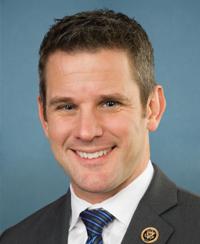
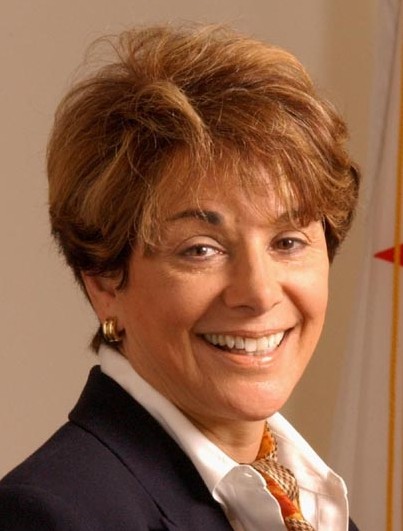
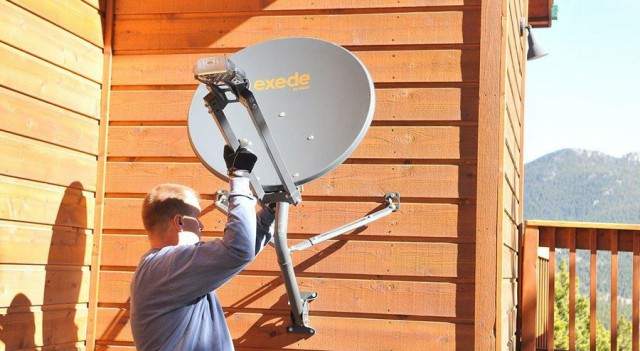 Despite claims satellite broadband has improved, our readers respectfully disagree:
Despite claims satellite broadband has improved, our readers respectfully disagree: The Communications Workers of America has told the New York Public Service Commission it should reject Altice’s proposal to buy Cablevision for more than $17 billion, claiming it’s a bad deal for customers and employees alike.
The Communications Workers of America has told the New York Public Service Commission it should reject Altice’s proposal to buy Cablevision for more than $17 billion, claiming it’s a bad deal for customers and employees alike. “As late as the morning of Feb. 5, [the Joint Applicants] have continued their grudging and incomplete disgorgement of relevant and probative material to which CWA is entitled,” the CWA wrote. “CWA now possesses documents and data which are contradictory and require reconciliation.”
“As late as the morning of Feb. 5, [the Joint Applicants] have continued their grudging and incomplete disgorgement of relevant and probative material to which CWA is entitled,” the CWA wrote. “CWA now possesses documents and data which are contradictory and require reconciliation.” New York City’s Office of the Public Advocate is no fan either. In
New York City’s Office of the Public Advocate is no fan either. In 
